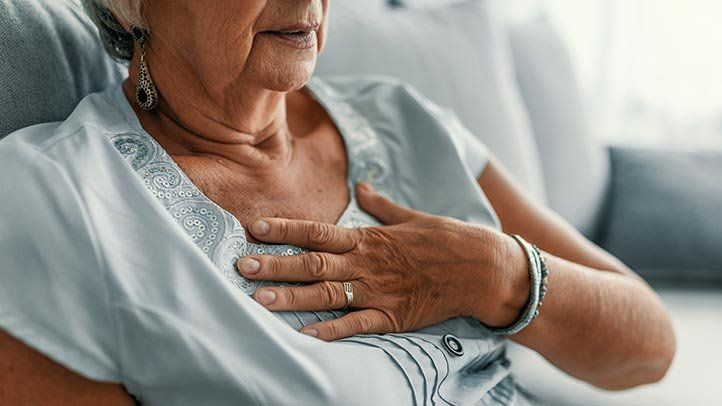Heart attacks are often associated with men, but it’s important to recognize that women can experience heart attacks too, and the symptoms might be different from what men typically experience. Being aware of the warning signs of a heart attack in women is crucial for early detection and prompt medical intervention.
In this informative guide, we will delve into the 6 warning symptoms of heart attack in women, providing insights and valuable information to help women identify potential heart attack symptoms and take proactive steps to safeguard their heart health.
Table of Contents
6 Warning Symptoms Of Heart Attack In Women
1. Extreme Fatigue
One of the subtle warning signs that women might experience before a heart attack is extreme fatigue. This fatigue isn’t just ordinary tiredness; it’s a deep and persistent exhaustion that doesn’t improve with rest. If you find yourself feeling unusually tired, especially in combination with other symptoms, it’s important to take notice and consult a healthcare professional.
2. Shortness of Breath
Shortness of breath, even during activities that didn’t previously cause it, can be a significant indicator of a heart attack in women. If you notice that you’re struggling to catch your breath, feel breathless after minimal exertion, or wake up at night gasping for air, it’s essential to consider the possibility of a heart issue and seek medical evaluation.
3. Discomfort in the Chest, Jaw, or Back
Chest pain is a common symptom of a heart attack, but women might experience it differently. Instead of intense chest pain, women might feel discomfort, pressure, or a squeezing sensation in the chest. This discomfort can also extend to the jaw, neck, shoulders, back, or even the arms. Any unexplained discomfort in these areas should be taken seriously.
4. Nausea or Vomiting
Some women experience nausea, vomiting, or indigestion-like symptoms before or during a heart attack. These symptoms might be mistaken for digestive issues, but if they occur suddenly and without any apparent cause, they could be signaling a heart problem. Pay attention to persistent nausea, especially when accompanied by other warning signs.
5. Lightheadedness or Dizziness
Feeling lightheaded or dizzy, as if you might faint, can be a warning sign of a heart attack in women. This symptom might occur suddenly and is often overlooked or attributed to other causes. However, it’s important to consider the possibility of a heart issue, especially when lightheadedness is accompanied by other unusual symptoms.
6. Cold Sweats
Sudden cold sweats, clammy skin, or a feeling of being unusually sweaty even when you’re not engaged in physical activity can be indicative of a heart attack. These sweats are often different from the hot flashes associated with menopause. If you experience cold sweats that can’t be explained by your environment or activity level, seek medical attention.
Conclusion
Recognizing the warning symptoms of a heart attack in women is essential for timely medical intervention. By being aware of these signs and taking them seriously, women can protect their heart health and seek the necessary medical attention to ensure a positive outcome. It’s always better to err on the side of caution and consult a healthcare professional when any unusual symptoms arise.
Also Check | 6 Best Foods To Treat Piles
FAQs
Not always. While some symptoms can differ, such as chest pain being less intense in women, both men and women can experience common symptoms like shortness of breath and discomfort in the chest and upper body.
No, it’s crucial not to ignore or downplay potential heart attack symptoms. If you experience any of the warning signs mentioned, seek medical attention immediately.
Yes, heart attacks can occur at any age, although the risk increases with age. It’s important for women of all ages to be aware of heart attack symptoms and seek medical help if needed.
If you suspect a heart attack, call emergency services (911 or your local emergency number) immediately. Time is of the essence in treating a heart attack.
Maintain a healthy lifestyle by eating a balanced diet, staying physically active, managing stress, and avoiding smoking. Regular check-ups and knowing your family’s heart health history can also help you take proactive steps.
While not all heart attacks can be prevented, adopting a heart-healthy lifestyle can significantly reduce your risk. Consulting with a healthcare professional for personalized guidance is recommended.










